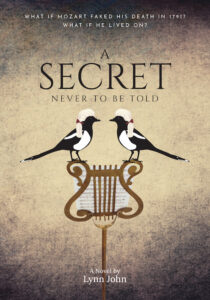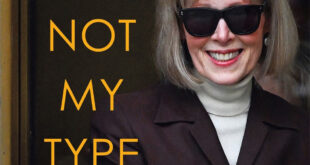A nurse sat down opposite me, clipboard on her lap, and checked me off against her list. “Hallucinations?” she asked. Question five or six.
“How in God’s name did you know that?” I said.
“Hallucinations?”
“Yes. I’ve been seeing a man – over there in the corner – sitting bent over – writing something. Never experienced anything like it before.”
“Quite common after this kind of operation.”
“Why – because of the drugs?”
“No, doesn’t seem to be. People on heart-lung machines in by-pass surgery are on the same drugs but they usually don’t hallucinate. Your heart wasn’t stopped. Hallucinations seem to occur only when the patient’s heart is kept beating and is handled. The surgeon reaches in and takes your heart out of its sac …”
“Sac? I didn’t know hearts came in sacs!”
“Protective sac – kind of membrane – anyway, they attached the arteries to your heart while it was beating – touching it of course – and that seems to have effects afterwards.”
“Like hallucinations?”
“Yes – and other things.”
“What other things?”
“Look, I don’t want to put ideas in your head – everyone’s different.”
“Are these … effects … permanent?”
“It varies … we don’t really know. Have you noticed anything else different?”
“No, not really.”
But I was lying.
Much of what I would have previously regarded as mundane, everyday, was suddenly momentous and moving and beautiful. Astonishingly beautiful – but out of sheer wonder at the breath-taking newness of it all. Simple things: birds alighting on a branch of the tree just outside the window – especially the moment they stretched out their feet and gripped the branch; the songs they sang, each note separate; individual drops of rain – that drop and that drop; and as soon as I got home, opera, particularly ‘Dove sono’ from Mozart’s ‘Le nozze di Figaro’ and ‘Nacqui all’affano’ from Rossini’s ‘La Cenerentola’ – both sung by women, both pieces demanding extraordinary voices ranging from deep contralto to coloratura soprano, with agile leaps and breath-taking runs..
Two years before I had my heart by-pass operation, I was rehearsing the music for my role as Ferrando in Opera New Zealand’s production of Verdi’s ‘Il Trovatore’, with the conductor of the opera, Eliano Mattiozzi.
Eliano was an Italian who was living in New Zealand and we were rehearsing in his house in Auckland. At the end of the rehearsal, Eliano invited me into his kitchen for a coffee. We had become friends. He picked up his coffee, sipped, and casually asked me a question.
“You’re a writer, as well as a singer, aren’t you?”
“Yes, “I said.
“What would you say if I told you Mozart didn’t die on December 5, 1791? That he faked his death and lived on?” he said.
“I can think of a number of reasons why Mozart may have faked his death,” I said, “… his debts … the Freemasons he’d alienated … his affairs … his wife’s liaisons … but if he’d lived on, you couldn’t have kept him quiet. He would have composed music.”
“He did,” he said. “He composed operas with and through someone else.”
“Who?”
“Rossini.”
“Gioacchino Rossini?”
“Yes. Gioacchino Antonio Rossini, the man who wrote thirty-nine operas in nineteen years.”
“Thirty-nine operas …”
“… in nineteen years. Think about that. One man!“ he said. and he leaned in close, “or was it two?”
“But you’re suggesting much more than that. You’re saying it was Wolfgang Amadeus Mozart. A dead man …”
“… a year before Rossini was born.”
“So why? Why Mozart?”
“Because of Mozart’s desperate need to disappear. To die in order to live.”
“And …?”
“Their music …”
“Their music?”
“… especially their operas.”
Eliano placed a hand on each of my shoulders and gently eased me onto a chair, then sat opposite me, close. “From 1982 to 1995,” he said, “I was Professor of Music at Conservatorio Statale di Musica di Salerno, and at Conservatorio di Musica Giovanbattista Martini di Bologna. And in that time in Italy, I conducted Mozart’s ‘Marriage of Figaro’ regularly, and Rossini’s ‘Barber of Seville’ often, and, in the process of learning and living inside the scores, over months, years, I started to see the similarities – in their harmonies … their colours … their tempi … their sonorities … even their pauses … and then I studied other operas – Rossini’s ‘The Thieving Magpie’, Mozart’s ‘The Magic Flute, Rossini’s ‘Cinderella’ … and I just knew.”
“You just knew …”
“Yes,” he said, and he sat back in his chair. “So, I wondered if you might be interested in writing their story.”
“… you wondered if I might be interested …
For the next two years, I researched the evidence for Eliano’s startling claim, his astonishing assertion: one year focussing primarily on Mozart, one year focussing primarily on Rossini. But then, suddenly, tragically, during that time, Eliano died of a heart attack.
I finished the research just before my operation, and was looking around for someone I would be happy with, to write the screenplay, using my research material.
Without success.
And five weeks, five days and eighteen hours after my operation, I wrote the opening lines of the “Maestro” screenplay. And the words poured out of me. I couldn’t stop them coming. It was like they were already there, sitting in my brain, and all I had to do was let them out. Six weeks later, I finished the first draft. It was a Friday. The next morning, Saturday morning, I started on my next story/screenplay. And that pattern, that condition, that obsession, that disease, has repeated itself, over and over, ever since. For over twenty years.

“A secret never to be told” is the novel that came out of the “Maestro” screenplay: the story of Wolfgang Amadeus Mozart and Gioacchino Antonio Rossini, two of the greatest composers the world has ever known.
Article by Lynn John, author of A Secret Never to Be Told









Join the Discussion
Type out your comment here:
You must be logged in to post a comment.